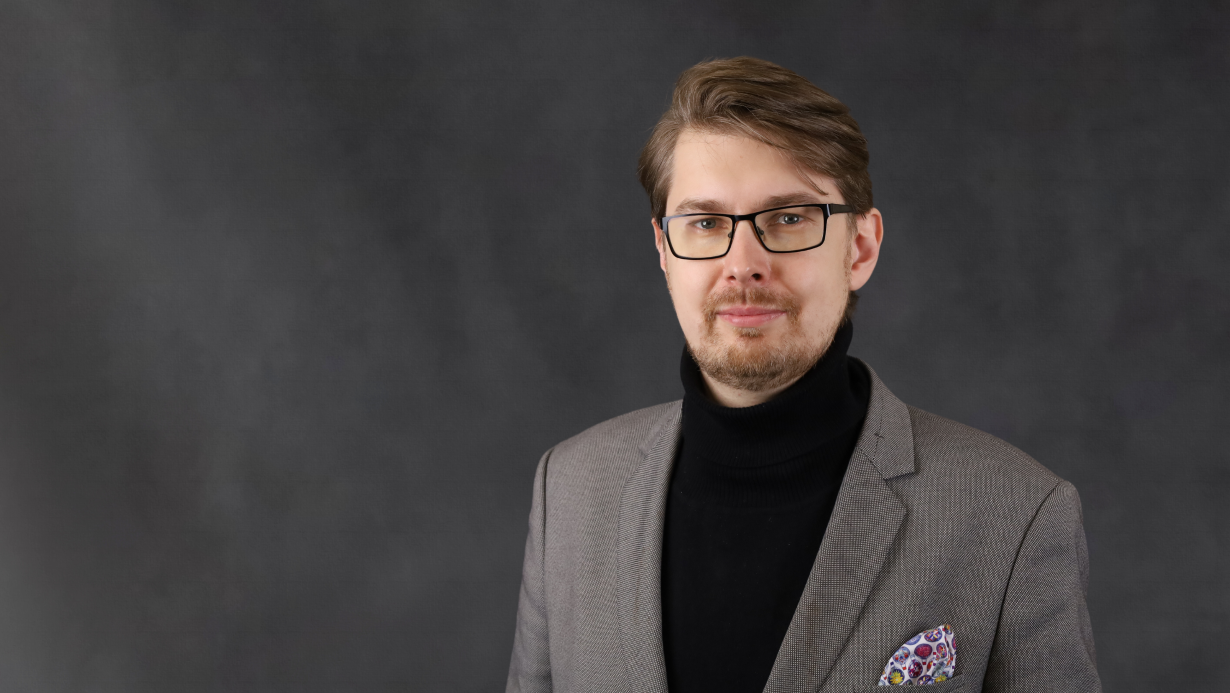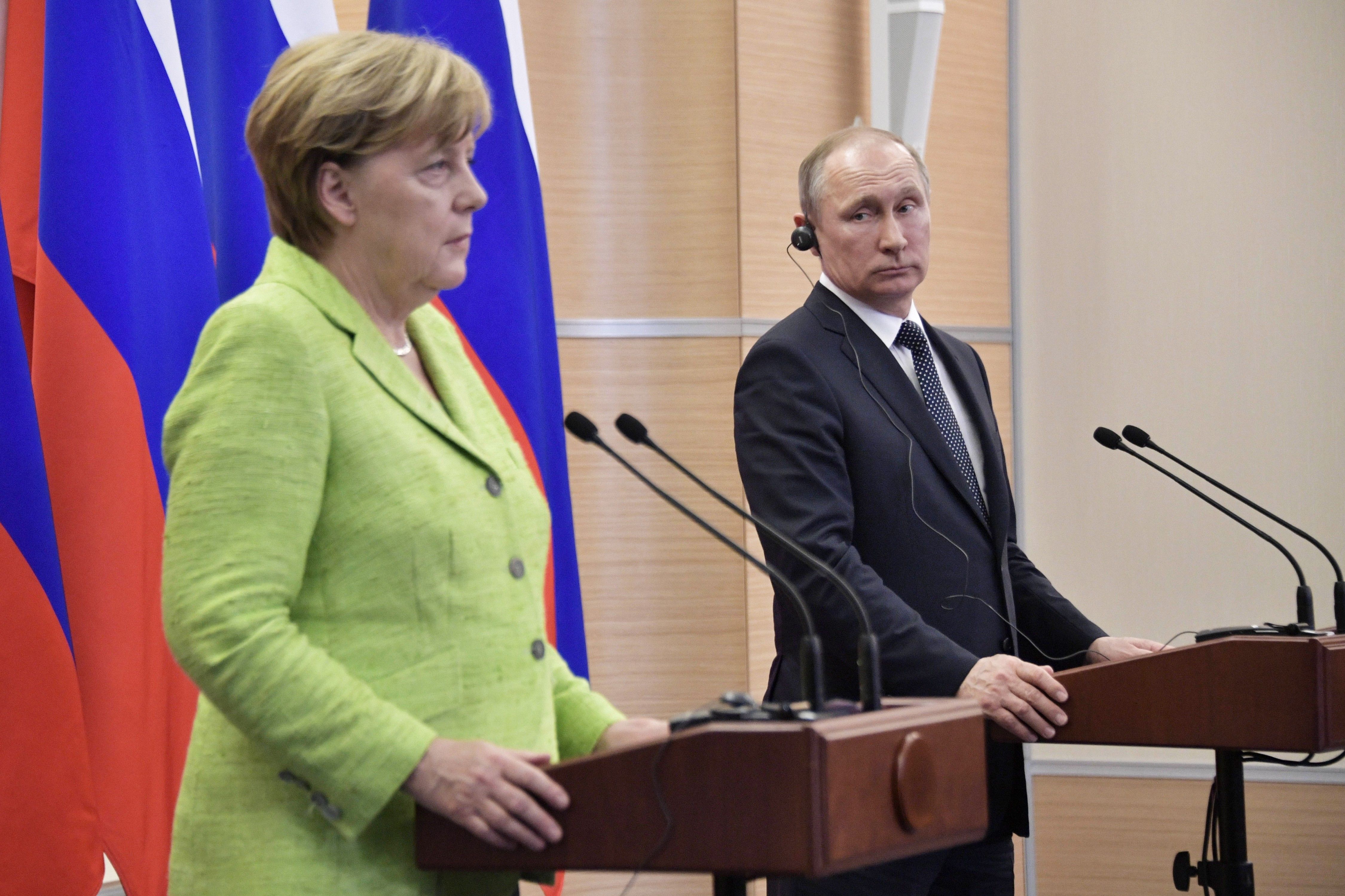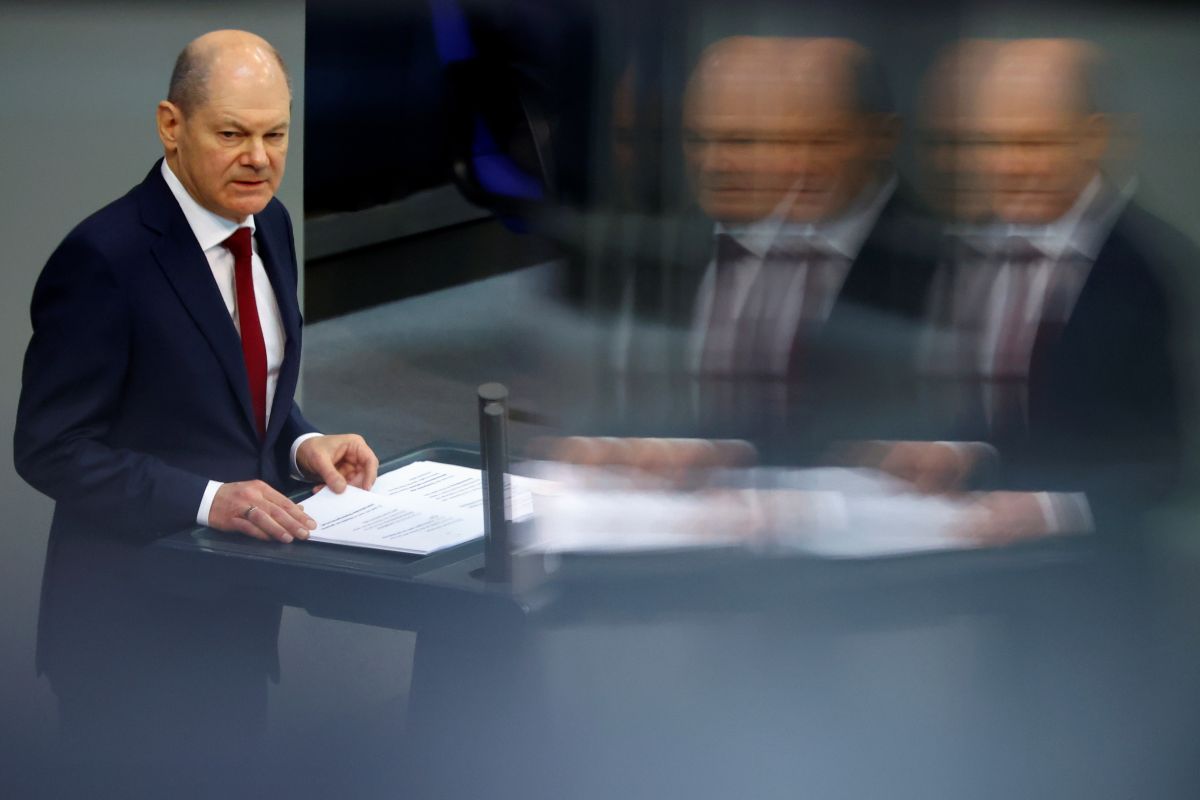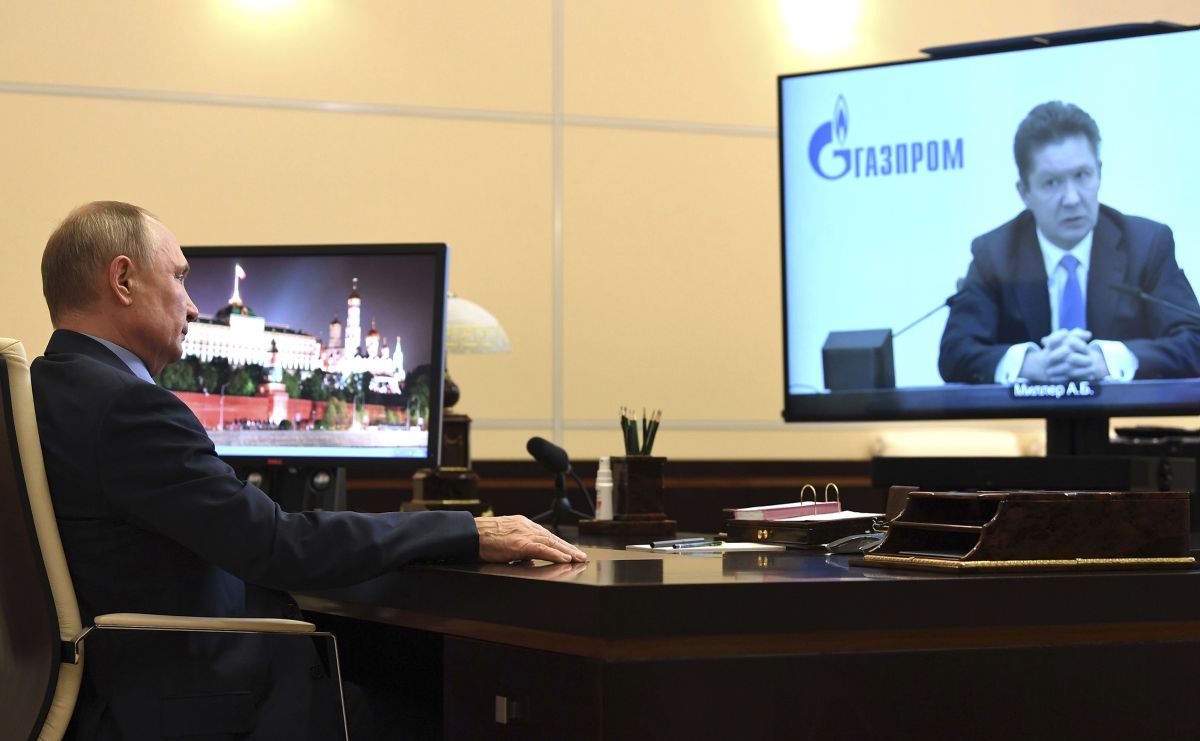German-Russian Relations and the Invasion of Ukraine: Debates and Decisions
The Russian aggression against Ukraine has provoked a debate in Germany about the mistakes of the previous government’s eastern policy. Russia is perceived now by German public opinion as more of a threat than before. The government’s stance towards Russia is evolving, and the fastest shifts are being made in energy policy. Business circles are hitting the “brakes” on sanctions, while Germany’s limited scope of military aid for Ukraine stems from fears in the public that the war will spread to NATO countries and is justified by German pacifism.
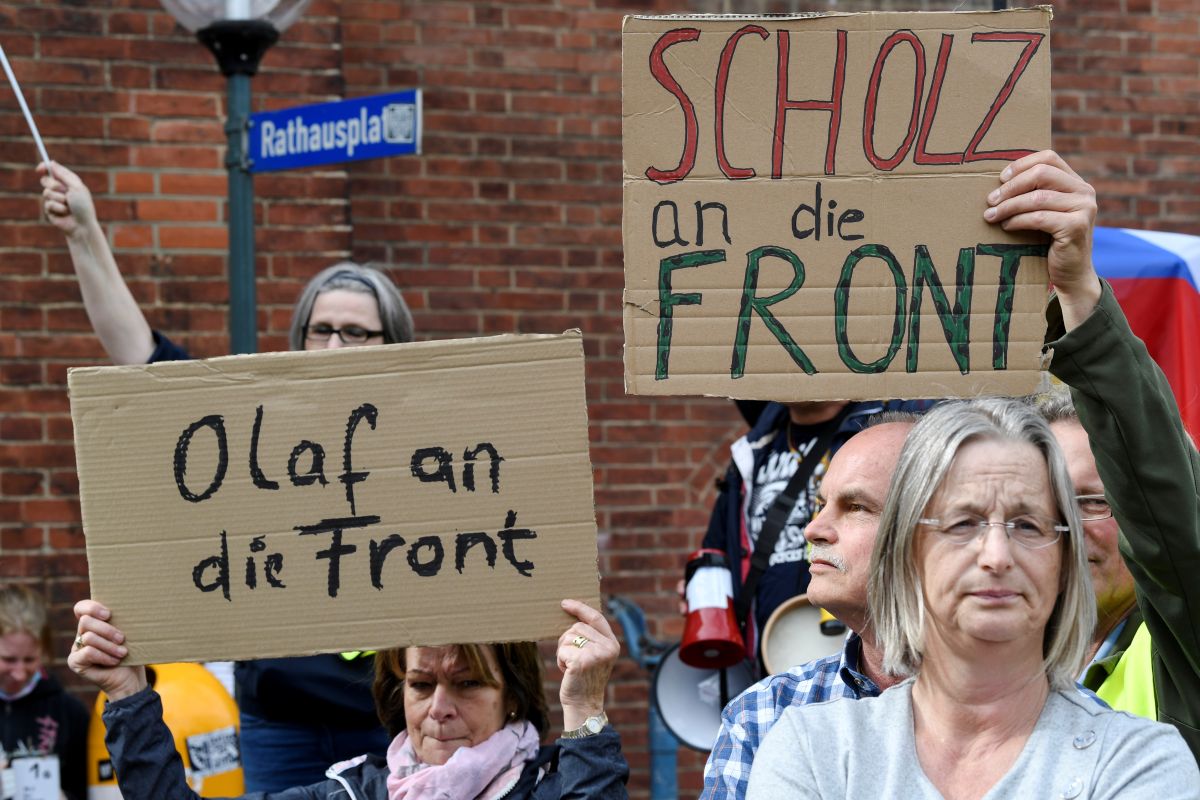 FABIAN BIMMER/ Reuters/ FORUM
FABIAN BIMMER/ Reuters/ FORUM
The limited discussions conducted in previous years in Germany on the attitude towards Russia did not lead to any significant changes. German policy has continued to be based on maintaining dialogue and energy cooperation with Russia, including in the form of the Nord Stream 2 (NS2) pipeline. Until the outbreak of the war, Germany sought to act as an intermediary between Russia and the West while refusing to supply weapons to Ukraine as the invasion forces gathered.
Public Debate about Russia
The attack on Ukraine has increased fear of Russia in Germany. In February, 55% of Germans considered it a threat, but by March it was 74%. For the first time ever, the respondents citing a fear of Russia almost equalled those in Poland (79%).
The feeling of threat influences the attitude towards the supply of heavy weapons to Ukraine. Nearly 60% of Germans said they fear that such moves could lead to the expansion of the war to NATO countries. The electorates of the FDP, the Greens, and the CDU are in favour of the supplies, while Die Linke and AfD are against. SPD supporters are divided, with 45% in favour and 46% against. The division among Chancellor Olaf Scholz’s own electorate explains why he has long blocked military supplies. References to the tradition of German pacifism, which is rooted in the experience of World War II, are used as an argument for limited aid to Ukraine.
At the same time, a public debate about the failure of the previous policy towards Russia is taking place. President Frank-Walter Steinmeier, who was one of the architects of this policy, has admitted that the support for NS2 and constant dialogue with Russia were mistakes. Regardless of such admissions, politicians “understanding Russia” remain in office, including the prime minister of Mecklenburg-Vorpommern, Manuela Schwesig (SPD). In that state’s parliament, a special committee of inquiry was set up to investigate the government-established Climate and Environmental Protection Foundation, which was supposed to complete the construction of NS3 by bypassing U.S. sanctions. Similar actions at the federal level that could demonstrate the scale of politicians’ links to Russian lobbying are unlikely because of a lack of political will.
The toughest rhetoric towards Russia has been adopted by politicians from the Green Party, the FDP, and part of CDU, who emphasise the importance of stopping Vladimir Putin. Die Linke’s views, based on a pacifist, anti-NATO, and anti-American approach, can be seen as supportive of Russia. The AfD has an unequivocally pro-Russia stance, advocating the withdrawal of sanctions, the launch of NS2, and close cooperation with Russia in the future.
The leader of the SPD, Lars Klingbeil, has announced work on a new shape of eastern policy that would involve greater distance from Russia and include the perspective of Central and Eastern European countries. Elaborating this new concept will require overcoming the resistance of the older generation of politicians, such as Rolf Mützenich, the leader of the parliamentary group in the Bundestag, and abandoning Germany’s ambition to be an intermediary between Russia and the West. The pursuit of understanding and building special relations with Russia stems from the tradition of eastern policy since the times of Chancellor Willy Brandt and is part of the SPD’s identity, which is why the changes will be evolutionary.
Political Decisions Since the Invasion
Since 24 February, Chancellor Scholz’s government has been signalling a gradual departure from its previous policy. The most far-reaching changes concern energy, an area in which Germany is dependent on Russia. Certification of NS2 has been suspended and gas storage facilities managed by Gazprom’s subsidiaries have been taken under managerial control. The government has begun investments in floating LNG terminals and is searching for alternative sources of supply. Consumption of Russian gas has been cut from 55 to 35% and of crude oil from 35 to 12%.
Germany is backing the embargo on Russian oil in the planned next package of EU sanctions. An agreement with Poland will ensure oil supplies to German refineries through the Gdansk petroleum port. Germany should be able to give up Russian oil by the end of 2022. However, there is a lack of political support for the embargo on Russian gas. Full EU independence from Russian supplies will only be possible in the longer term, which in the case of Germany is 2024. The closure of Germany’s last nuclear power plants at the end of 2022 will increase gas consumption temporarily and may hinder the diversification of supplies.
Chancellor Scholz has announced the creation of a €100 billion special fund to equip the Bundeswehr in order to improve its ability to defend Germany and NATO territory. The final form and the implementation date of this plan remain open questions.
Under pressure from public opinion, its NATO allies, the Greens, and the FDP, the government announced the delivery of Gepard self-propelled anti-aircraft guns and PzH 2000 howitzers to Ukraine. A Bundestag resolution passed on 28 April by a coalition of the SPD, FDP, and Greens, along with the opposition CDU/CSU, stipulates that the supply of arms, including heavy weapons, is to be the main measure to halt Russia in parallel to sanctions. In order to reduce the resistance to this step among the pacifist part of the elite and wider public, the government stressed that it is undertaking all steps in this matter in agreement with NATO.
The Position of Business
German companies such as Henkel, Siemens, and Mercedes withdrew from the Russian market after the invasion of Ukraine. However, some companies are taking advantage of the imprecise formulation of the sanctions. The energy company UNIPER complied with Putin’s decree on paying for gas imports in roubles, opening an account at Gazprombank and making payments in euros, which are later converted to roubles. DZ Bank resumed financial operations in Russia with the exception of sanctioned entities and individuals.
The CEOs of big corporations who officially support the sanctions are trying to defend their current business model based on exports, suggesting weakening sanctions in the future. An example of this attitude is the CEO of Volkswagen Herbert Diess, who emphasises that economic ties with Russia should not be completely terminated.
The strongest objection from business is to the possible embargo on Russian gas. Projections from the Federal Ministry for Economic Affairs and Climate Action indicate that a sudden withdrawal from Russian gas would cause a recession in Germany. Increasing the pressure on politicians and public opinion, representatives of companies that use gas in their production process, such as Martin Brudermüller, head of the chemical group BASF, are presenting a more pessimistic scenario than the one forecast by the government, predicting the greatest recession and unemployment since World War II if the gas tap is turned off immediately.
Conclusions and Perspectives
Russia’s invasion of Ukraine marked a failure of German eastern policy. It also triggered a debate about attitudes towards Russia that goes far beyond the discussions of previous years. Similar to the Polish perception, Russia is now perceived in Germany unequivocally as a threat.
The Russian aggression against Ukraine has weakened the existing political and economic ties between Russia and Germany. Chancellor Scholz’s government has taken the most far-reaching decisions in the area of energy due to the scale of dependence on Russian supplies. The pace and scope of these changes may suggest they can be sustained. The evolutionary abandonment of assumptions that had been the basis of German eastern policy until now, although regarded in Germany as a breakthrough, may be perceived from the point of view of Poland and other countries in the region as too slow and not far-reaching.
In the face of the failure of its previous policy towards Russia, Germany will seek to make itself more credible in the eyes of its NATO and EU allies. The change of attitude towards Russia to the perception of it as a threat to European security, will make German support for Poland’s postulates concerning the strengthening of NATO’s Eastern Flank more possible.
In the long-term perspective, after the end of the fighting, one can expect growing pressure from German business on a return to regular business relations with Russia, with the exception of the energy sector, which is perceived as a tool of Russian influence. Due to Germany’s continuing perception of Russia as an important player in the international arena, Germany can be expected to re-establish political dialogue on selected global issues, such as climate policy.


